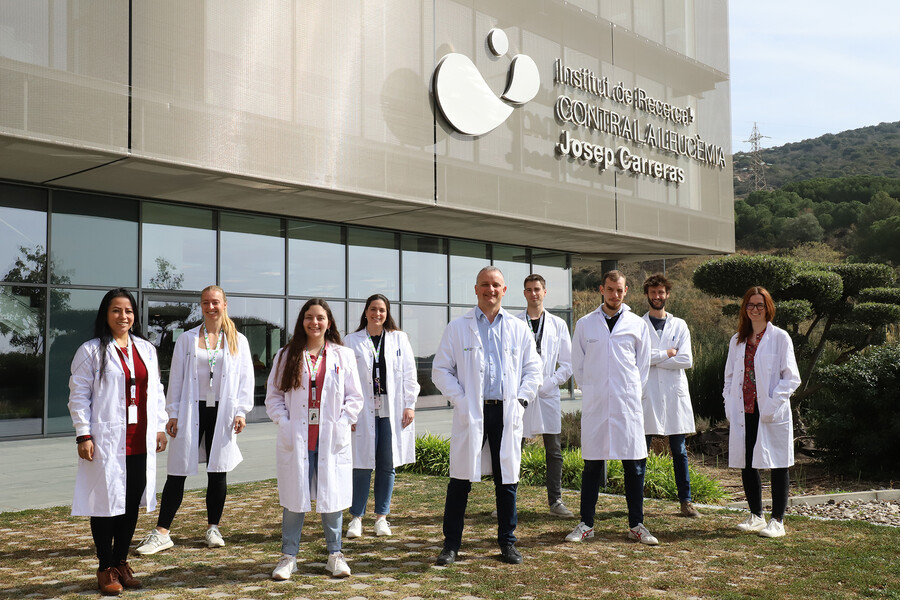
Introduction
Our research is centered on the development of innovative preclinical models of B-cell lymphoma that can be used to unravel the complex role of tumor-lymphoma crosstalk during the development of the disease and the acquisition of refractoriness in current regimens. To that end, we intend to reproduce the original composition and architecture of tumors in the laboratory to carry out a complete transcriptomic and proteomic analysis and develop new pharmacological entities in collaboration with academic experts and clinical-level pharmaceutical companies, all with a view to fostering the bench-to-bedside transfer of new and tailored therapeutic strategies.
Our Research
We develop in vitro and animal models with the intention of more accurately recreating the context of onset and progression of the lymphoma in each patient. In this regard, we take account of fundamental parameters that until now have been largely unexplored in preclinical research, such as the architecture of the original tumor, the components of the immune system that accompany it and the defects in the regulation of the proteins – not only of the genes – that characterize it.
Our Goals
Our main areas of research are:
Development of a patient-derived xenograft platform for the evaluation of new targeted therapies in aggressive B-cell lymphomas. To confirm the efficacy, safety and translationality of these studies, we propose that standard in vitro assays be associated with innovative in vivo models (PDX) to allow us, firstly, to work directly with primary tumor cells to validate the most effective therapies and the most relevant biological effects while taking into account the role of the tumor microenvironment; and, secondly, to guarantee that these therapies can be translated into clinical trials with molecular and genetic determination of the factors that condition the response to the best therapies tested in each patient.
Modulation of the lymphoid microenvironment by intrinsic protein homeostasis in aggressive B-cell lymphoma. We will characterize the ubiquitome of malignant B cells through proteomic profiling and correlate these intracellular complexes with the immunological pattern of each tumor model to validate the impact of tumor protein homeostasis on the development of B-cell lymphoma and the intratumoural infiltration of immune cells.
Our Challenges
Through our research, we aim to understand the following:
- To what extent intrinsic protein homeostasis can regulate the complex tumor-stroma crosstalk in different models of aggressive B-cell lymphoma.
How germinal center-derived lymphoma can be sensitized to immune checkpoint blockade therapy.
How multiomics analysis of paired treatment-naïve and therapy-refractory B-cell lymphoma can help in the design of efficient and personalized therapies.
Selected Publications
Current Grants
Ministerio de ciencia, innovación y universidades
EXODUS-BCL Exosome-based therapies to disrupt tumor-stroma crosstalk in advanced preclinical models of DLBCL and MCL
Biocat
Embryocure EmbryoCure: a new platform for the design of in vivo immunocompetent and non-animal xenograft models of hematological cancers
Agència de gestió d'ajuts universitaris i de recerca
Identification of novel combinatorial treatments and predictive biomarkers of response to maximize cancer immunotherapy efficacy in solid and haematological tumours.




